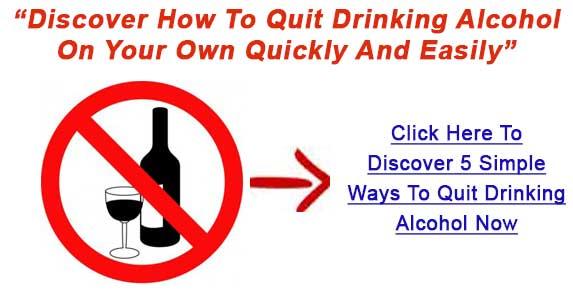How To Quit Binge Drinking - Discover Quick Tactics To Stop Drinking Liquor Easily
Recognize the freedom you can have from liquor and its damaging affects
Since beer affects the brain you might suffer from memory loss and you may not be able to recall some situations or events afterwards. By stopping drinking alcohol you decrease your chances of developing serious health problems associated with alcohol abuse or dependence. By putting an end to consuming you can improve relationships with your loved ones. Stop drinking and you reduce your chances of injuring yourself or others in alcohol-related catastrophes. If you give up drinking you could be a good role model since the children of alcoholics are more likely to become alcoholics themselves. Overdrinking could cause you to make irresponsible decisions and even become violent. Dependency on beer is very dangerous and could happen easily if you carry on consuming large amount (click here). Constant liquor consumption is also a costly addiction and you may incur debt. People who abuse liquor can also suffer from problems with sleep because liquor alters total sleep time as well as time required to fall asleep. Children can be born with serious mental disabilities if a pregnant woman drinks while with child.
Read this advice to learn how to stay sober and give up drinking for the long haul
After trying this change of lifestyle for a month try it for another 30 days. By continuing in a new path you will eventually form a new pattern of life. Write down benefits of what you are experiencing. Practice ways to say no politely to people who try to offer you a drink. If you do decide to have an alcoholic beverage try to imbibe soda or juice after every cocktail. As you begin cutting down on consuming gradually take more days to not drink every week. See if you feel better physically and emotionally on the days you are alcohol-free (quit drinking alcohol). If you have a drink after successfully stopping remember that it doesn’t mean you have failed. Even if you have a drink again you still have ability to pursue a sober life. Most important do not give up on your goal of sobriety.
There are several different kinds of support groups if you don’t agree with philosophy of Alcoholics Anonymous. Secular Organizations for Sobriety is an international organization that takes a science-based tactic to recovery from alcoholism. Like AA they promote abstinence and provide support to others struggling with same issues. SOS differs from AA in that it has various approaches to recovery for those who are uncomfortable with the spiritual content of AA. Another option for support is Self-Management and Recovery Training also known as SMART recovery. Similar to SOS this program known as SMART Recovery focuses on self-directed change. SMART Recovery is grounded in cognitive behavioral therapy which is a psychotherapeutic approach that addresses dysfunctional emotions and maladaptive behaviors like liquor abuse. CBT is a form of psychotherapy that emphasizes important role of thinking in how we feel and what we do. Cognitive-behavioral therapy is based on idea that our thoughts cause our feelings and behaviors instead of external situations like people or events. The role of a CBT therapist is to listen and encourage while your role is to express your concerns and implement what you learn.
If you want to give up consuming beer try herbs to help ease anxiety and insomnia. Try St. John’s Wort to replace mild depression with a state of calmness. Silymarin-containing milk thistle could support liver and may help prevent damage to this organ by alcohol. Kudzu root has been used by traditional Chinese doctors to reduce appetite for alcohol. Alcoholism could limit your body’s ability to absorb certain nutrients so it is important to take supplements. Alcohol use may increase the body's load of free radicals but you could battle them with antioxidants like zinc and selenium. Alcoholics are almost always deficient in the B vitamins in particular vitamin B1 or thiamine (how to quit binge drinking). If you want an oral medication that will make you feel ill when you drink and therefore negative towards beer try disulfiram. Naltrexone is another medication that may help prevent heavy drinking. There is an injectable version of naltrexone available which may be easier to commit to.


